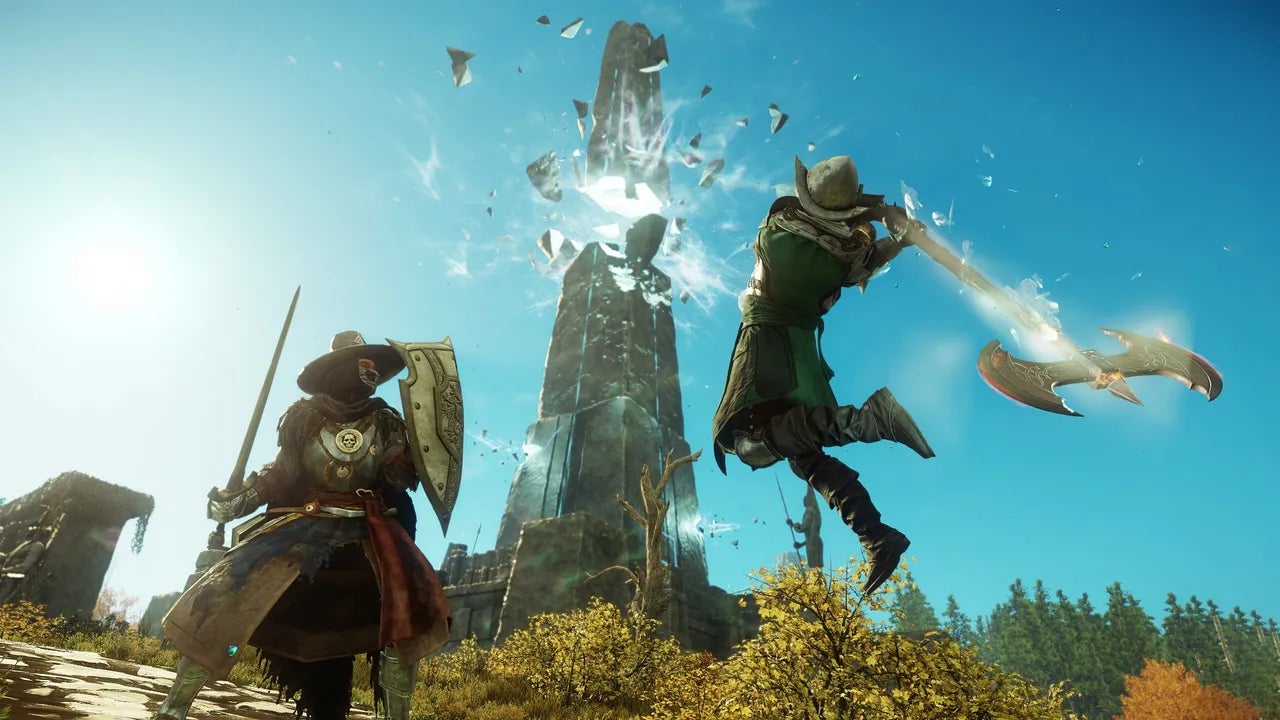Another tech giant’s gaming ambitions bite the dust
October 31, 2025
The gutting of Amazon’s gaming division as part of a sweeping round of job cuts across the company is another blow to the already grim state of the games industry’s employment market and career stability.
It’s not clear how many of the 14,000 jobs the giant company is cutting will be in its gaming subsidiaries, but it’s flagged “significant role reductions” and a major turn away from developing big-budget titles.
As awful as the impact of any major layoffs may be, this one has been a long time coming.
By that I mean no disrespect to the no doubt hard-working and talented people whose lives are being dealt hammer blows by these strategic decisions made far above their pay grades; Amazon’s studios’ games featured a lot of genuinely great work, perhaps most notably on New World, an MMORPG title that’s now among those now slated for shutdown.
Strategically, however, Amazon’s entire flirtation with the notion of being a games company has been a decades-long comedy of errors.
The world’s largest and most powerful retailer and Cloud services operator has at every turn failed to leverage its market advantages or produce a coherent strategy that lasted for more than about five minutes.
“Amazon’s entire flirtation [of] being a games company has been a decades-long comedy of errors”
It’s a testament to the incredible strength and growth of Amazon overall – driven first by its online retail business and more recently by Amazon Web Services – that the directionless bungling of its games-related efforts has survived so many restructures, U-turns, product cancellations, and leadership changes.
However much was being spent on games, it could be waved away as a rounding error during the boom years – but the music was bound to stop sooner or later.
With Amazon now battening down the hatches across the board, gaming’s blessed existence as a muddled, loss-making hobby for the company has seemingly come to an end.
What’s extraordinary in all this is just how little Amazon has to show for all the time and effort it has expended on gaming. The company is of course one of the biggest gaming retailers in the world simply by virtue of being Amazon, but has failed to leverage that into any meaningful position in digital gaming.
So poor has the company’s performance on that front been that when a LinkedIn post from former Prime Gaming VP Ethan Evans surfaced in February, reflecting on the company’s failure to disrupt Steam’s dominance of the PC digital distribution market.
“Everything Amazon did in this space was just so fragmented and temporary”
The most common reaction was genuine surprise at the discovery that Amazon had actually been trying to compete with Steam in the first place. Everything Amazon did in this space was just so fragmented and temporary.
Prime Gaming actually included a bunch of free games for Prime subscribers, but it’s not clear how many subscribers even knew that – and the games you redeemed there were generally provided through third-party stores like GoG or Epic Games Store, not added to any kind of Amazon Games library.
That service fluctuated between trying to be an actual games subscription service and instead being an offering of free currency packs for popular F2P games; now it’s been folded into the Luna game streaming service, though the average Amazon customer would be hard pressed to notice that either service exists, let alone that they’ve merged.
The contrast with how Amazon has approached Prime Video – a service that it seemingly genuinely believes in, with support right up to the top of the company, even when it’s flinging ill-advised billions at Lord of the Rings shows nobody asked for – is instructive.
When you search for a movie on Amazon, Prime Video results are front and centre; if you want to buy an actual DVD or Blu-Ray, you’ll have to click your way through several screens letting you know that it’s available to watch for free, to rent, or to buy on the streaming service.
Search for a game on Amazon, though, and you often wouldn’t get anything of the sort; at times it was quite possible to buy a game that was already available to you for free on Prime Gaming or Luna without ever once seeing information to that effect.
For all the strategic errors that were undoubtedly made on the development and publishing side of Amazon Gaming, I don’t think the company can really be faulted for failing to become the major publisher they wished to be.

That’s an exceptionally difficult thing to do and is well outside Amazon’s core competencies (to wit, running a cloud platform, and dabbling in a little light retail on the side). The fact that some games – like New World – actually did turn out well and create a passionate, if not huge, fanbase is not a bad showing on that front, albeit apparently not a commercially viable business unit either.
The total failure to leverage the company’s scale and its dominance of cloud and consumer-facing retail into any kind of foothold in digital distribution or online gaming services, however, is almost impressive; especially when you consider that the company apparently thought it was mounting serious competition to Steam for all this time.
As much as there were individual managers and executives responsible for the decision making at Amazon, and some of them made really bad choices along the way, I think it’s more instructive to think about what happened here in terms of structural failure.
After all, Amazon isn’t alone in this failure. It’s only a few years since we saw Google abruptly (if entirely predictably) throw its hands in the air and give up on its own once-grand gaming ambitions, with the Stadia streaming service being ditched and full refunds being issued for hardware and games for the platform.
That’s two of the so-called “Magnificent Seven” who have essentially burned their hands on the gaming stove in the past five years alone.
Scale, finances, and tech dominance simply aren’t enough to make it in what is, essentially, a creative industry that sometimes cosplays as a tech sector on weekends.
Google wasn’t willing to make the long-term commitment required to build a business in this sector, while Amazon seemingly lacked the coherent vision and high-level support required to leverage its actual competitive advantages on behalf of its gaming ambitions.
“The collapse of Amazon’s gaming ambitions may be a very timely reminder that there’s some things money can’t buy – especially in the absence of a coherent strategy to spend it”
At their core, though, I’d argue that both failures boil down to the same root cause.
The cultures of both companies were simply ill-suited to the kind of management style that’s needed to nursemaid complex, long-term, expensive creative projects to a successful fruition.
The kind of intensive internal competition that has been a catalyst for success for many tech companies is disastrous for creative industries, where constructive collaboration always yields far better results in the long-term than Darwinian competition.
With tens upon tens of billions of dollars currently floating around the games industry for gigantic acquisitions and mergers, the collapse of Amazon’s gaming ambitions may be a very timely reminder that there are some things money can’t buy – especially in the absence of a coherent strategy to spend it.
Search
RECENT PRESS RELEASES
Related Post




